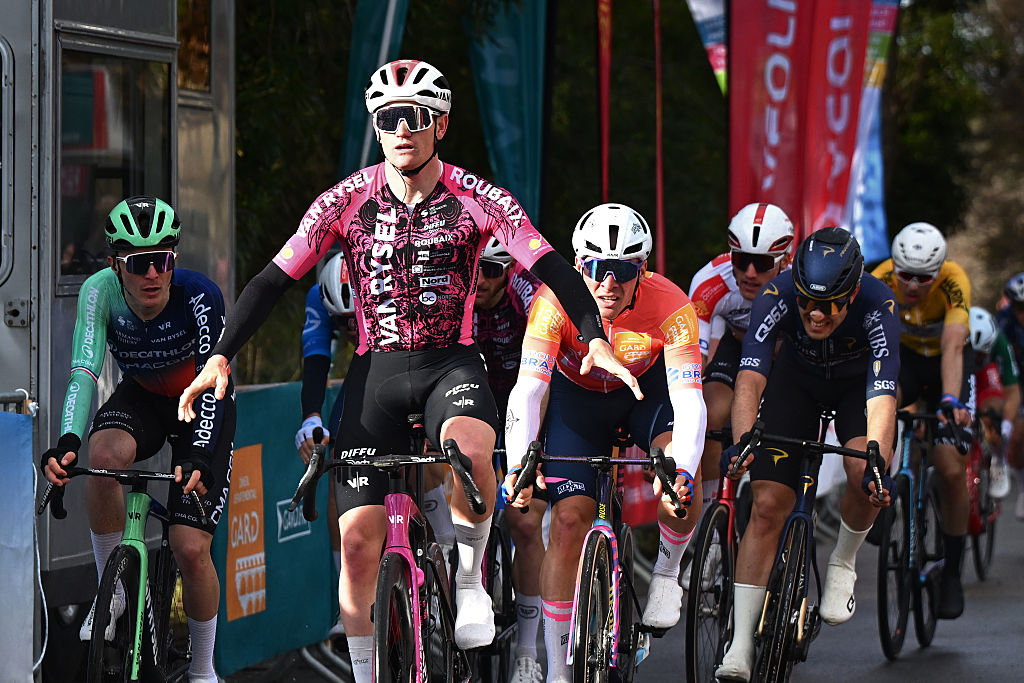Video: The five key stages of the Tour de France
Details of the decisive stages in this year's race
The latest race content, interviews, features, reviews and expert buying guides, direct to your inbox!
You are now subscribed
Your newsletter sign-up was successful
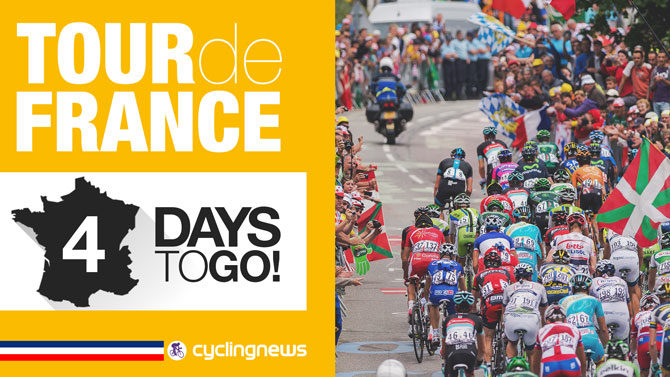
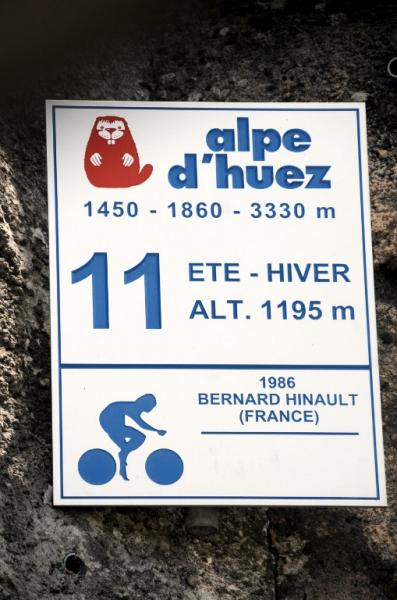
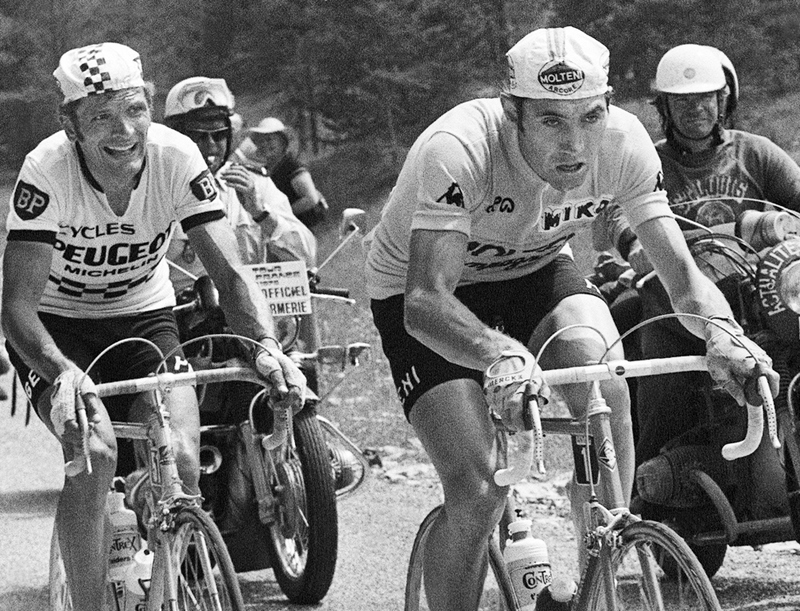
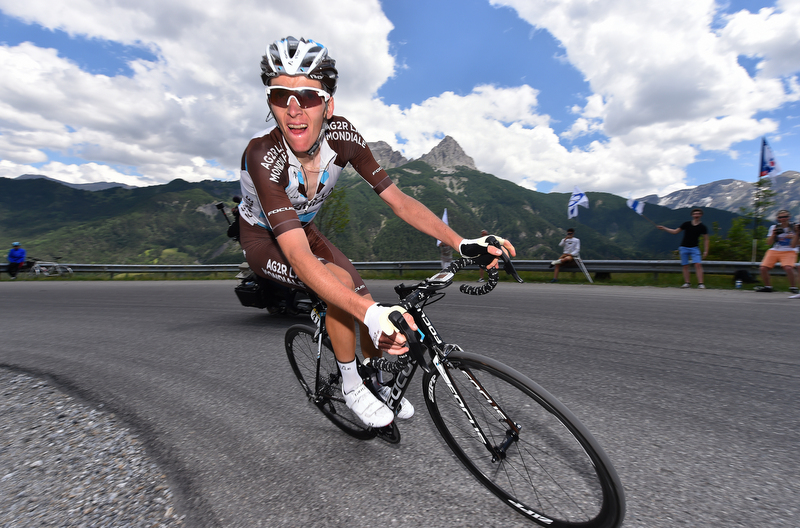
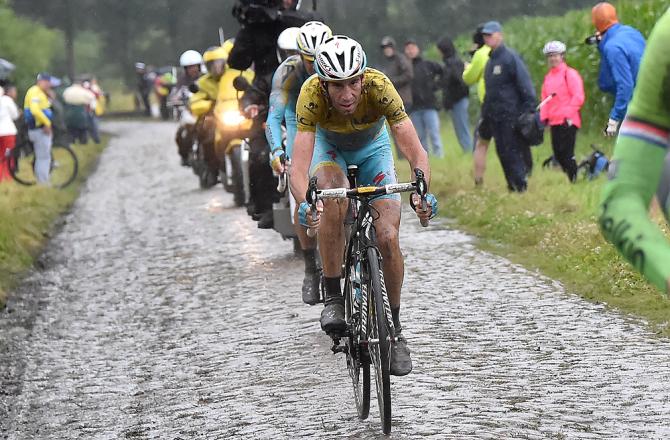
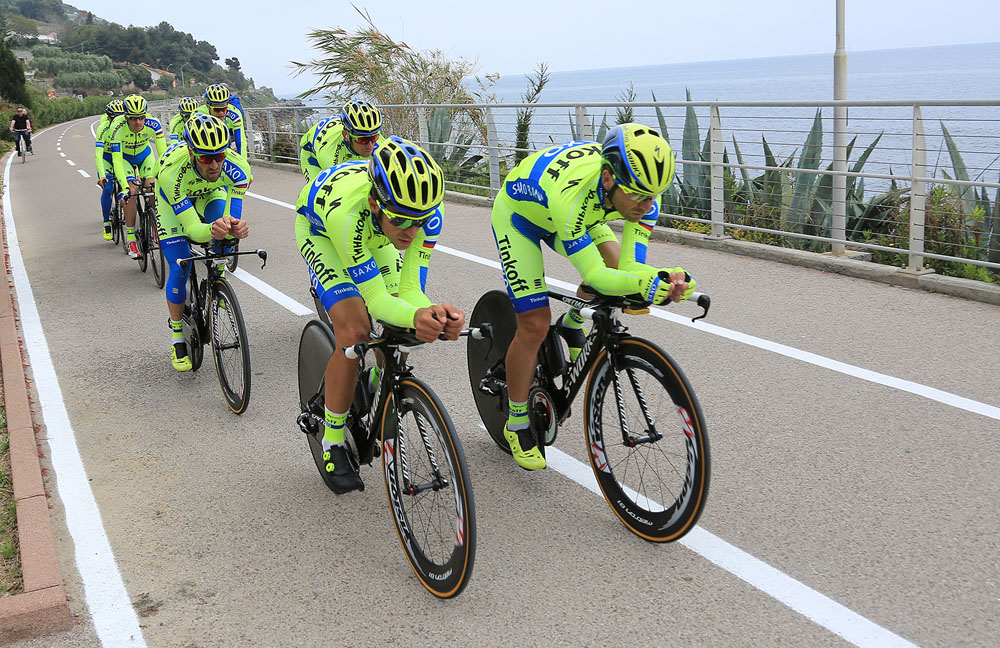
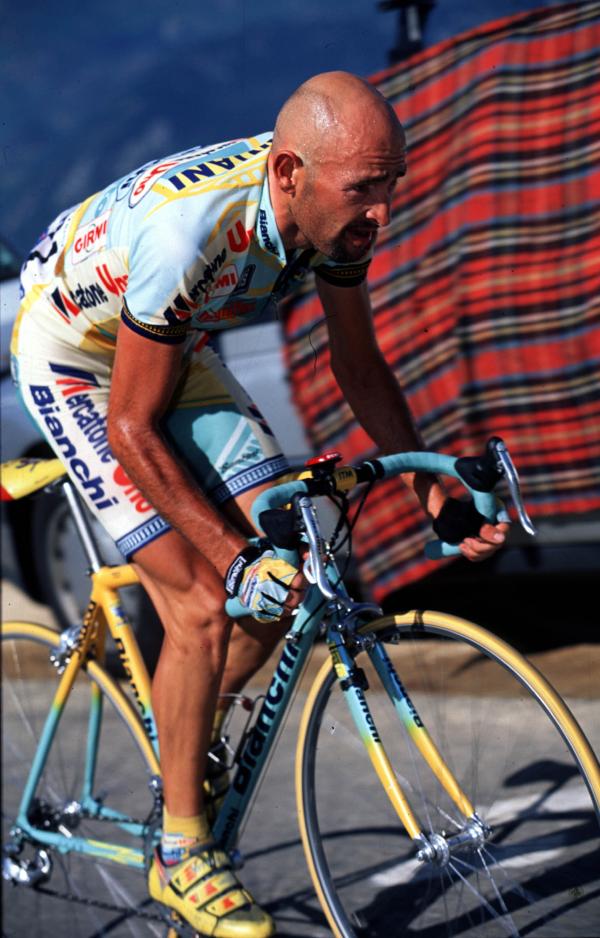
The peloton will tackle 3358km during the 21 days of racing at this year’s Tour de France, as they ride from Utrecht to Paris. There is no time for the general classification contenders to settle into the race this year, with hills, cobbles, coast roads and uphill finishes coming in the first week. The Pyrenees and Alps dominate the second and third weeks, with the lack of individual time trialls putting the focus on the mountains.
Cyclingnews has identified the five stages in this year’s Tour de France that could be key to deciding the overall winner.
Stage 4: Tuesday, July 7: Seraing – Cambrai, 223.5 kilometres
The previous day's stage on the Mur de Huy will have given the general classification riders their first real test of the Tour de Franc, but this 223km monster on the Paris-Roubaix pave could be race-defining for some. Not content with making it the longest stage of the three weeks, the organisers have thrown in seven sectors of cobbles – three of which featured during this year’s edition of Paris-Roubaix.
It’s the second consecutive season that the pavé factors into the Tour’s route and the third time in six editions. The effect has always been as if throwing a grenade into the general classification, where few come out unscathed. Last year the peloton was so nervous before the cobbled stage that multiple crashes sent Chris Froome (Team Sky) home nursing broken bones.
Most of the other overall contenders were also left nursing their wounds as the apocalyptic conditions meant few stayed upright. While Nibali didn’t win the Tour de France on the stage to Arenberg Porte du Hainaut, his performance on the day, finishing third and putting two minutes into his rivals, was a large part of his eventual success.
There are fewer cobbles to contend with this time out, with just 13 kilometres of the brutal French stones, but a bad day could end not end a rider's overall ambitions and even their entire race.
The latest race content, interviews, features, reviews and expert buying guides, direct to your inbox!
After three days travelling through the Netherlands and Belgium, the cobbled stage brings the riders into France for the first time. Beginning in the Belgian city of Seraing, the riders head southwest past Charleroi, taking on the fourth category Côte de la Citadelle de Namur and the first pavé sector Pont-à-Celles à Gouy-lez-Piéton, before the cross the border. The final six cobbled sections come inside the last 50 kilometres, the last just 13 kilometres from the finish.
As the GC contenders try to stay safe, it is the likes of Paris-Roubaix winner John Degenkolb, Las Boom, Niki Terpstra and Fabian Cancellara that will be favourites for the stage win.
To subscribe to the Cyclingnews video channel, click here
Stage 9: Sunday, 12 July: Vannes-Plumelec, 28 kilometres
Rounding out the first week of racing will be the team time trial to Plumelec. While the Tour is lacking in individual time trialling, this 28-kilometre test is one of the longest team races against the clock in recent years. Starting in the port town of Vannes, the riders will take an almost direct route to the finish in Plumelec.
There are a few twists and turns to catch the unsuspecting rider out but it is the terrain that is most likely to cause some problems. The undulating course is capped off with the 1.7-kilometre climb of the Côte de Cadoudal, and teams going out too hard could find themselves in trouble here.
World team time trial champions BMC will be among the favourites to win on this stage, and stand a strong chance of putting their leader Tejay van Garderen into yellow. Orica-GreenEdge and Etixx-QuickStep also have proven records in this discipline. Of the big GC teams it is Movistar that has come with the strongest time trial line-up, bringing three reigning TT national champions with them to France. After a poor performance in the Critérium du Dauphiné, Chris Froome will hope that Team Sky can turn things around and limit any time losses.
With a rest day and the Pyrenees to come, this team time trial could set the GC up perfectly for the next two stages in the mountains.
To subscribe to the Cyclingnews video channel, click here
Stage 12: Thursday, 16 July: Lannemezan-Plateau de Beille, 195 kilometres
The climax of this year's visit to the Pyrenees comes with the summit finish on Plateau de Beille. After already spending two tough days in the high mountains, both with mountaintop finishes, there will be big gaps opening up in the overall classification and this stage could seal the fate of some.
The stage starts innocently enough, with a 42-kilometre jaunt along the southern border of France before the Col de Portet d’Aspet rears up. The now infamous 4.3-kilometre ascent will thin out the bunch but shouldn’t trouble the serious contenders. The subsequent first category Col de la Core and Port de Lers are opportunities for someone willing to take a big risk to win the stage. It’s a long way out though, with over 100 kilometres still to run from the top of the Core. The 10-kilometre trip through the valley between the Port de Lers and the final ascent of the Plateau de Beille is also another major obstacle for a plucky escapee.
It is only the sixth time that the Tour de France will climb this 15.8-kilometre beast since its first appearance in 1998. The average gradient of 7.9 per cent is deceptive with several sections going above 10 per cent. With three climbs already covered, the rider’s legs will be praying for the finish line.
Only two members of this year’s peloton have ever tasted victory on the Plateau de Beille with Jelle Vanendert escaping to win in 2011, while Alberto Contador found success in 2007 en-route to his first overall victory.
To subscribe to the Cyclingnews video channel, click here
Stage 17: Wednesday, 22 July: Digne-les-Bains – Pra Loup, 161 kilometres
The final, crucial week of the Tour de France begins with a return to Pra-Loup, the scene of Eddy Merckx’s yellow jersey defeat. On that fateful day in 1975, Merckx was well and truly trounced by France’s Bernard Thévenet. The Belgian had suffered a punch to the stomach from a spectator the previous day and a micro-fracture in his jaw but fought on only to crack and lose time. It has been said that the all-conquering rider was never the same again after that day of suffering.
Forty years later, Ag2r-La Mondiale’s Romain Bardet won this exact stage during this year's Critérium du Dauphiné. The element of surprise has gone from Bardet’s tactic but he has proved that a long-range move on the decent of the Col de Allos could not only secure you the stage win but put significant time into your rivals.
This 161-kilometre stage from Digne-les-Bains brings the riders over increasingly taxing ascents, with two third and a second category ascents before the category one climb of the Col de Allos. With the Galibier no longer a part of the 2015 Tour, the 14-kilometre climb is the highest of the race and the lucky rider to pass over the top first will get a tidy 5000 Euros.
The 5.5 per cent gradient is enough to whittle down the peloton to an elite few bu, as Bardet showed, the technical descent is a prime opportunity for the brave to really make a difference. Fortunately for the climbers, there is no traverse through the valley as the road turns immediately upwards for the ascent of Pra Loup.
This type of finish is well suited to the skillset of a rider such as Vincenzo Nibali, who is well known for his ability on the descent.
To subscribe to the Cyclingnews video channel, click here
Stage 20: Saturday, 26 July: Modane-Alpe d’Huez, 110 kilometres
The Tour de France's showpiece finale to the Alpe d’Huez has already encountered problems before the race has even begun but remains a key stage in this year's race. Landslides in the area forced the organisers to avoid the planned ascents of the Télégraph and Galibier, replacing them with the Col de la Croix-de-Fer. We are left with a curtailed but a still exciting prospect for the final day in the mountains.
The stage is just 110 kilometres and should give us action from the very start. It will be the second time in as many stages that the riders will take on this 2,067 high Col de la Croix-de-Fer. This time the riders will approach from the Saint-Jean-de-Maurienne side, a 29.5-kilometre ride at an average of 5.5 per cent.
From the top of the Croix de Fer just 54 kilometres of racing remain, and the long descent is a good opportunity for those looking to make up some time to take a punt without burning too many matches. There is, however, a long ride through Allemont and Bourg-d’Oisans before the foot of the Alpe d’Huez.
Some 63 years after its debut as a Tour summit finish, L'Alpe d'Huez has become a highly anticipated feature of the race but it will be the first time that the Alpine ski resort will play host to the final day’s action in the general classification.
Christophe Riblon won the last time up the famed climb in 2013, beating Tejay van Garderen on the historic double ascent, while it was Pierre Rolland claimed success back in 2011.
Despite the changes, this truncated stage should give us a fitting final showdown to the 2015 Tour de France.
To subscribe to the Cyclingnews video channel, click here
Born in Ireland to a cycling family and later moved to the Isle of Man, so there was no surprise when I got into the sport. Studied sports journalism at university before going on to do a Masters in sports broadcast. After university I spent three months interning at Eurosport, where I covered the Tour de France. In 2012 I started at Procycling Magazine, before becoming the deputy editor of Procycling Week. I then joined Cyclingnews, in December 2013.





